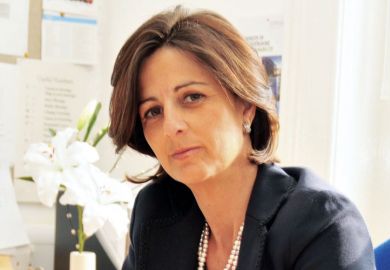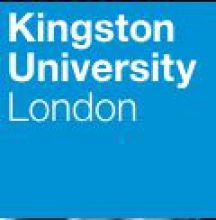The University of Gibraltar is capitalising on its unique geographical location to raise its profile in global higher education, according to its inaugural vice-chancellor.
Daniella Tilbury, who was officially installed as vice-chancellor at a ceremony in London in September, said that the young institution was perfectly placed for “international brokering”, which she believes is as crucial for an institution as focusing on its local offering in the current uncertain economic times.
The university officially opened in September 2015, at a cost of £10 million, and Professor Tilbury said that she is staggered by the pace at which things have developed in such a short time.
“We had 261 students last year, which was 45 per cent higher than our predicted numbers,” she told Times Higher Education. “We had students of 13 different nationalities, mostly from the regional area. We want to top our numbers at 1,215 in five years. We’ll probably hit that in year three.
“Our student numbers are healthier than anticipated. It’s [all about] the diversity of the courses that we want to have in our portfolio, and making sure we have the right partnerships.”
The university offers four undergraduate programmes, three business courses and one in nursing, which are delivered in conjunction with the University of London’s international programmes, and Kingston University and St George’s, University of London, respectively. Gibraltar also offers PhDs by research and “PhDs by publication”, and it is finalising arrangements for a master’s in marine science in conjunction with the University of Seychelles.
Despite having 82 per cent local students in its first year, Professor Tilbury said, the university’s “offer isn’t [solely] for local students”, and Gibraltar’s aim is to build on its strategic position – as a British overseas territory situated between Europe and Africa – to solidify its position in the international higher education sector. Because of this, she said, she was less worried about the effects of Brexit than a UK university vice-chancellor might be, although she shared the universal concerns about access to research funding.
“We’re not going to be as challenged, and we’re the gateway to Africa,” she said. “Africa has got the fastest-growing demographic in terms of potential students in HE. We have Spanish, French and English [people] as common practice in Gibraltar, and obviously all of that will facilitate a lot of the international brokering.
“We’ve had a lot of interest from Asia, [but] it feels right for us to start brokering partnerships in Africa – because of our proximity, because of our history and intercultural connections.
“Our geography, our history, our intercultural history of Gibraltar would assist us in becoming an international university. We’re in an ideal location to bridge communication and collaborative projects across the continents – within and outside the EU.”
She added that the university was not ignoring Europe in its vision for internationalisation and had already had “a lot of interest from Spanish universities” and institutions from the UK.
“Staff from Spanish universities want to come to the university to develop professional qualifications, language proficiency, because we’re so close,” she said. “We’ve got several Andalusian universities less than an hour away. There’s lots of interest for collaboration with the University of Granada, and we’ve been talking to the University of Bath about ways in which we can link together in terms of sports provision.”
The establishment of the United Nations Conference on Trade and Development (UNCTAD) Centre of Excellence at Gibraltar is a mark of how quickly the university has developed its international strategy.
When its plans were announced in February, Gilbert Licudi, Gibraltar’s minister for education, said that the centre would “enhance the reputation and international reach of the university”, placing it at the “forefront of training and discussions on all aspects of global trade development”. Professor Tilbury said that it was already doing work to “support international collaboration”.
Over time, Professor Tilbury said, she saw the University of Gibraltar becoming a “very specialist” institution.
“We’re anchored in Gibraltar with a sense of history, a sense of place that will slowly work its way through our academic expertise,” she said. “Although we’re responding to need and expectation, that will distil into strong areas of academic excellence, locating us as experts in key issues [like the] Commonwealth, Mediterranean studies…international politics.
“We have an intuitive sense that there are some unique components to our offering that have an international remit.”
POSTSCRIPT:
Print headline: Gibraltar sees two worlds of potential
Register to continue
Why register?
- Registration is free and only takes a moment
- Once registered, you can read 3 articles a month
- Sign up for our newsletter
Subscribe
Or subscribe for unlimited access to:
- Unlimited access to news, views, insights & reviews
- Digital editions
- Digital access to THE’s university and college rankings analysis
Already registered or a current subscriber?








